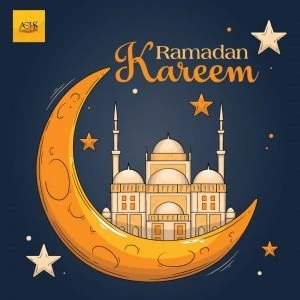Ramadan Marketing Strategy 2023-2024
Ramadan is a holy month in the Islamic calendar that is observed by Muslims worldwide. During this month, Muslims fast from sunrise to sunset, abstaining from food, drink, and other physical needs. Ramadan is a time for reflection, self-improvement, and community-building, making it an important time for marketers to connect with their Muslim consumers. In this article, we will explore the key elements of a successful Ramadan marketing strategy.
Understanding the Target Audience

The first step in any successful marketing strategy is to understand your target audience. Ramadan is observed by over 1.8 billion Muslims worldwide, making it an important market for brands looking to connect with this demographic. It is important to understand the cultural and religious significance of Ramadan and how it affects the daily lives of Muslims.
During Ramadan, Muslims focus on spiritual reflection and family gatherings. They often spend more time at home and are more likely to shop for groceries and gifts for family and friends. Brands that understand these behaviour’s can tailor their marketing campaigns to appeal to these needs. For example, a food brand might focus on promoting products that are easy to prepare for iftar, the meal that breaks the fast at sunset. A retail brand might focus on promoting gifts and decorations for Eid al-Fitr, the holiday that marks the end of Ramadan.
Creating Relevant and Authentic Content
Once you have a good understanding of your target audience, the next step is to create relevant and authentic content. Ramadan is a time for introspection and self-improvement, and many Muslims are looking for ways to strengthen their faith and improve their lives during this month.
Brands that can align themselves with these values can create authentic and meaningful campaigns that resonate with their Muslim customers. For example, a bank might create a campaign that promotes charitable giving during Ramadan, while a fitness brand might promote healthy habits and exercise during the month.
It is also important to create content that is culturally relevant and sensitive to the needs of the Muslim community. This means avoiding stereotypes or cultural appropriation and being mindful of the diverse cultures and traditions within the Muslim community.
Leveraging Social Media
Social media is an important tool for reaching Muslim consumers during Ramadan. Muslims around the world use social media to connect with friends and family, share their Ramadan experiences, and seek out information about the month.
Brands can leverage social media to reach their target audience with targeted ads, sponsored posts, and influencer partnerships. It is important to use platforms that are popular among Muslim consumers, such as Instagram, Twitter, and Facebook.
Social media can also be used to engage with customers and build brand loyalty. Brands can create Ramadan-themed social media challenges or contests to encourage user-generated content and engagement.
Partnering with Influencers
Influencer marketing is a powerful tool for reaching Muslim consumers during Ramadan. Influencers are trusted voices within the Muslim community, and they can help brands reach their target audience in an authentic and meaningful way.
When partnering with influencers, it is important to choose individuals who are respected within the Muslim community and who align with the values of your brand. Influencers can be used to promote products, share brand messaging, and create content that resonates with their followers.
In addition to individual influencers, brands can also partner with Islamic organizations and charities to create campaigns that promote social good and community building during Ramadan.
Offering Special Promotions and Discounts
Special promotions and discounts are a great way to incentivise customers during Ramadan. Many Muslim consumers are looking for ways to save

